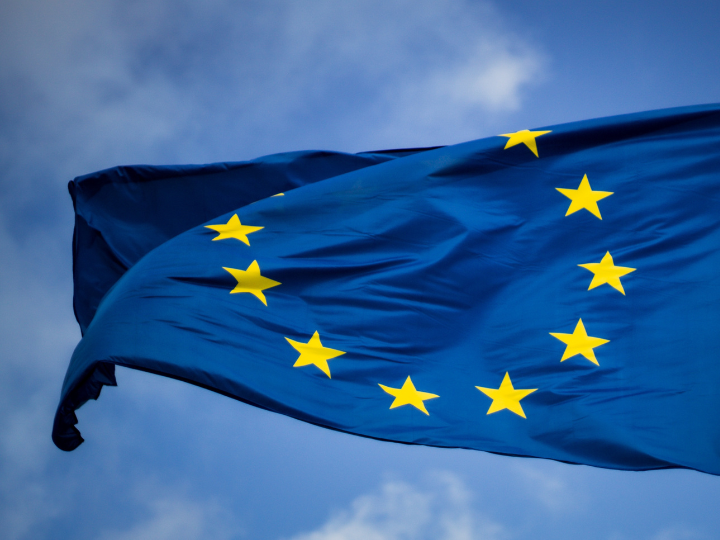by Judy Dempsey*
Europe is on autopilot.
There is a prevailing sense that the status quo in Europe can continue. This status quo is based on the assumption that the wars next door won’t affect the European Union, the way it functions, the lives of its citizens.
There is the assumption that the United States, whoever is elected president in 2024, will continue to provide a security umbrella for Europe. Europeans believe they can sleep soundly.
There is also the assumption, fed by disinformation, that Ukraine is losing the war against Russia. Maybe for some European companies it could soon mean going back to business as usual with the Kremlin.
All these assumption point to the same defect in the state of the EU in 2023. The bloc has singularly failed to internalize how all these conflicts will profoundly impact its future stability. And how the status quo is no longer sustainable.
In times of upheaval, EU leaders always like to resort to a mantra: A crisis makes the bloc stronger.
It’s not the case. From crisis to crisis, Europeans have reacted, sometimes miserably—as in the case of the bloody and violent breakup of the former Yugoslavia—and sometimes admirably—until now, to Russia’s war against Ukraine. The record is mixed and Europe has not always emerged stronger.
There are many other, less talked about crises Europe is confronted with.
Take Iran’s nuclear program. If it mutates into Tehran having a nuclear weapons capability, that would profoundly change the balance of power in the Middle East, not to mention the impact on the nuclear non-proliferation regime. By the way, the EU has been almost indifferent to the widespread anti-regime demonstrations in Iran.
Another issue is trade.
The EU has long been a magnet for countries wanting to clinch a trade deal with the bloc, given its size and all the advantages of exporting and importing with reduced tariffs.
That allure cannot be taken for granted. None of the EU countries have the critical raw materials needed to implement their agendas for speeding up Europe’s transition to renewable energy. The EU has not adapted its language or policies to take into account the leverage third countries have when it comes to negotiating trade deals.
The bottom line is that whether it is military conflicts, trade deals, or climate issues, the union believes it can maintain the status quo. That status quo has roots in the historical attraction of the EU and a belief that it can muddle through instead of recognizing the need for integrated fiscal, foreign, defense and security policies.
The wars in Ukraine and Gaza, to name just two examples, should have pushed Europe out of its comfort zone while confirming the necessity to integrate. Neither has happened.
In 2023, several EU member states sought to use the comfort zone to advance their own agendas. For example, Hungary’s Prime Minister Viktor Orban, whether motivated by a quest for power or his mysterious links with the Kremlin, has so far held up a big financial package to Ukraine.
There are other examples of member states flexing their muscles to stop further enlargement, derail a coherent migration policy, or block trade deals.
When it comes to Russia’s war on Ukraine, the parlous—if not disingenuous—state of Europe’s defense industry, with governments saying they haven’t enough military capabilities to send to Ukraine, points to a strategic blindness with regard to what is at stake. Arms exports by several big EU countries show the availability of military hardware that could be diverted to Ukraine. One wonders if national interests prevail over the desire for a Ukrainian victory.
National interests have so often prevailed. Trade talks between the EU and Australia and Mercosur broke down recently for reasons largely related to France’s desire to protect its farm lobbies.
This is understandable. But the EU needs a dose of honesty. It has to reflect on essential questions: Can it really be a regional or global player without having a coherent foreign and security policy? Can it react to events if key decisions require unanimity among the twenty-seven members states? Can it really make a difference if it is not prepared to take responsibility for its own security?
These questions have been around for some time. That is the depressing aspect. They confirm an intellectual complacency or, to be more blunt, an intellectual dishonesty whereby leaders will not say out loud what is needed for Europe to have influence, stability, and security.
Ukraine nearly broke that status quo. With the election cycle about to take off in Europe—and the United States—it is not certain that in 2024 Europeans will step out of this dangerous comfort zone. That would suit Russia and China very nicely.
*nonresident senior fellow at Carnegie Europe and editor in chief of Strategic Europe
**first published in: Carnegieeurope.eu




 By: N. Peter Kramer
By: N. Peter Kramer

